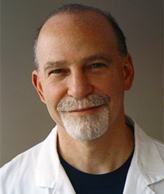ASH: Repurposed Drugs Show Promise in Multiple Myeloma
Today we speak with Steven T. Rosen, MD, about a couple of the projects he and his group are working on, repurposing old drugs for the treatment of multiple myeloma, that will be presented this year at ASH.
Steven T. Rosen, MD

Today we speak with Steven T. Rosen, MD, director of the Robert H. Lurie Cancer Center at Northwestern University and director of cancer programs at Northwestern Memorial Hospital, Chicago. Dr. Rosen will be talking with us about a couple of the projects he and his group are working on that will be presented this year at the American Society of Hematology (ASH) meeting in Atlanta.
-Interviewed by Michael Kaufman
Cancer Network: Welcome, Dr. Rosen.
Dr. Rosen: Thank you.
Cancer Network: I know one of the projects you’re working on has to do with myeloma and the “repurposing” of old drugs…
Dr. Rosen: We have two projects that I’m very excited about that involve the repurposing of drugs that are currently used for other indications. One of the projects we are actually presenting a component of here at the ASH meeting. The other repurposed drug we are not presenting at this meeting but the trial will soon open. Let me tell you about each of these investigations.
The one that will have information presented here at ASH involves metabolism. It’s been known for over 100 years that cancer cells handle sugar differently than normal cells. This is referred to as the Warburg effect. It relies more on glycolysis so that it can use the sugar moieties not just to produce energy but also to build a biomass, which would be lipids, proteins, nucleic acids. An investigator in my group, Mala Shanmugam, discovered that the proteins that are essential for taking the sugar into the cell, the GLUT proteins, are apparently expressed in certain blood cancers, in particular myeloma, where GLUT4 is apparently expressed, and there’s an off-target effect of a drug used for HIV treatment, ritonavir. One of the side effects of ritonavir therapy is hyperglycemia and it affects sugar uptake by interfering with GLUT4. This has some impact on replication of the myeloma cell-but the cells are pretty clever and they start to switch to a mitochondrial metabolism. And so she’s combined ritonavir with another commonly used drug that’s used for diabetes treatment, metformin. And metformin is capable of interfering with that mitochondrial pathway, and we find that when we combine both drugs in vitro against myeloma we get this remarkable synergy in the killing of the cells. So the beauty is that these are two drugs available-one that’s been used for HIV treatment, the other for diabetes-that we’re capable of combining in a cancer therapy. And ironically, on a theoretical basis, the hyperglycemia created by ritonavir should be controlled by metformin. These drugs have been combined in the past in individuals who were HIV positive and had diabetes but cancer wasn’t a component of those studies, so we’re excited to see what the results may be.
The other initiative involves a drug that’s been used to treat rheumatologic conditions, leflunomide. Leflunomide is very potent in treating arthritic problems. It’s involved with urate metabolism. A number of labs have shown that it can have potential anticancer effects in the test tube. In our case we looked at myeloma. This was based on some historic work we did relating to gene expression profiling in myeloma. Last year an elderly woman who had run out of all therapeutic options, whose blood counts were low, we had limited alternatives. We talked about her receiving leflunomide as a single agent, off of a trial but just as a compound that you can purchase. She went on the drug and it had a profound effect on her myeloma that lasted over a year until her life was taken by completely unrelated circumstances.
So we’re very excited about these two initiatives and anticipate both will be up and active within the next few months.
Cancer Network: When do you expect to be presenting…?
Dr. Rosen: Our plan is to initiate the clinical trial; we’re not presenting it at a meeting at this juncture. We’ll probably distribute a case report related to the one patient and her circumstances and the preclinical work that was done that stimulated that study.
Cancer Network: Are you currently enrolling patients?
Dr. Rosen: No. These trials are in the final stages of being put together, and then going through internal review board approval.
Cancer Network: So what exactly is being presented at this meeting with regard to ritonavir and metformin?
Dr. Rosen: What we are presenting at this meeting are the essential issues related to glucose metabolism in myeloma and chronic lymphocytic leukemia. We have two separate posters addressing the altered metabolism that we find in these blood cancers, which is an ideal target for therapy.
Cancer Network: Thank you, Dr. Rosen.
Navigating AE Management for Cellular Therapy Across Hematologic Cancers
A panel of clinical pharmacists discussed strategies for mitigating toxicities across different multiple myeloma, lymphoma, and leukemia populations.